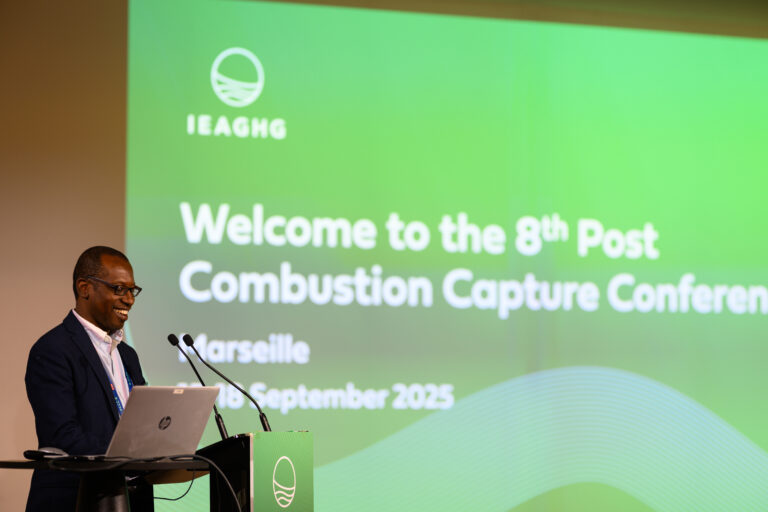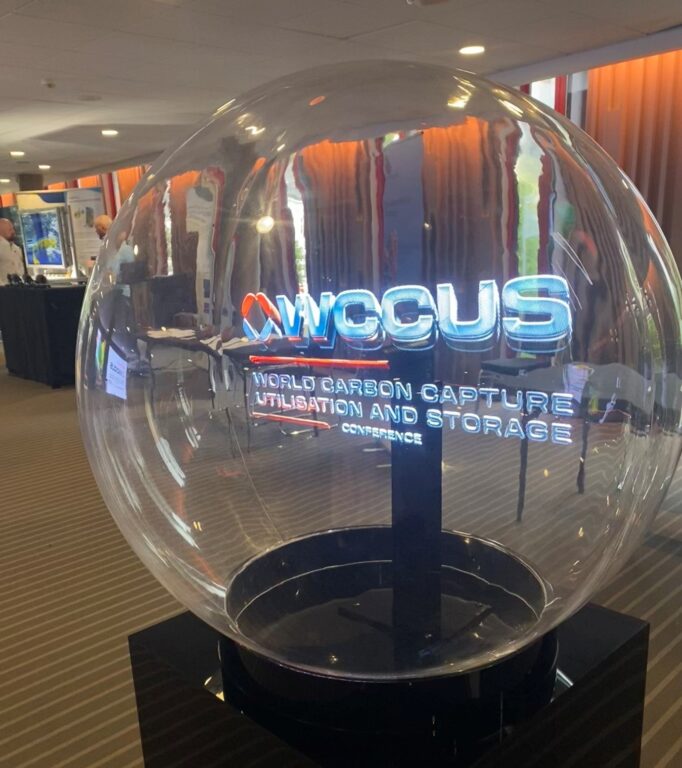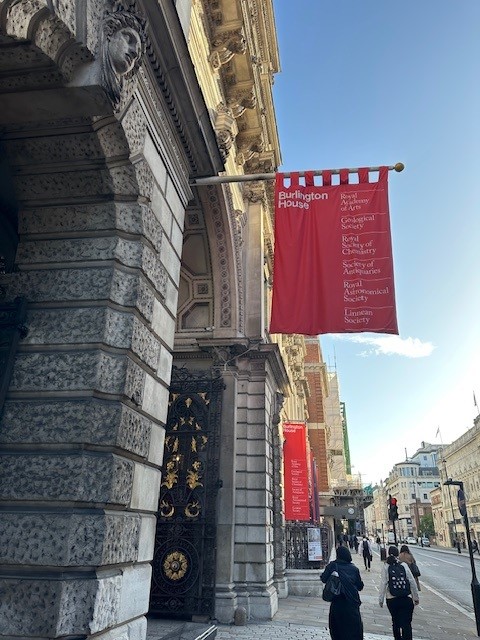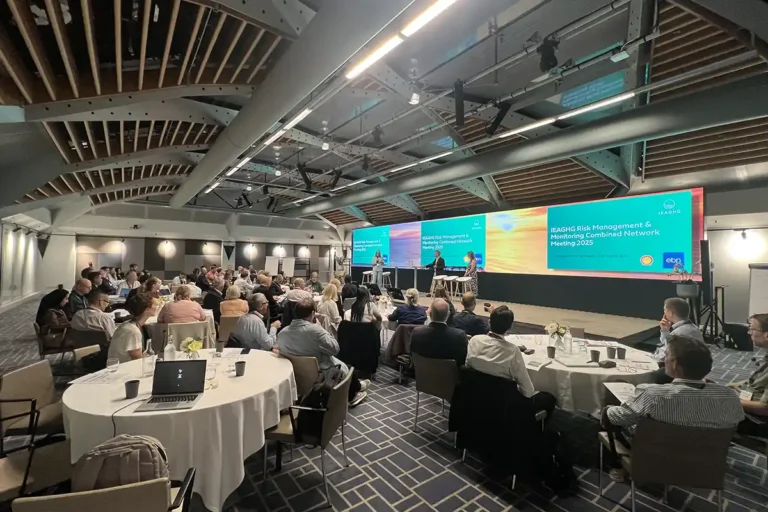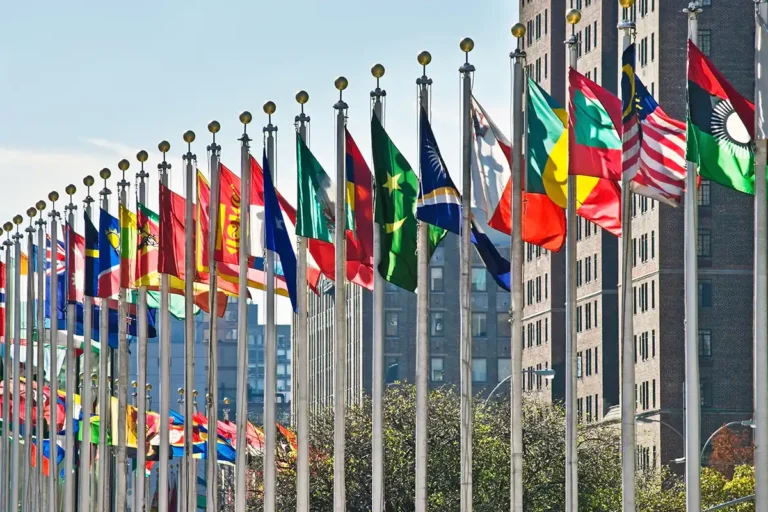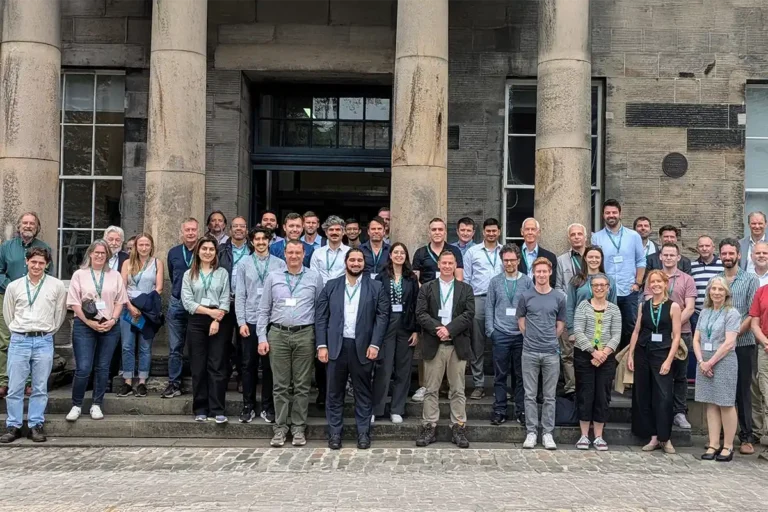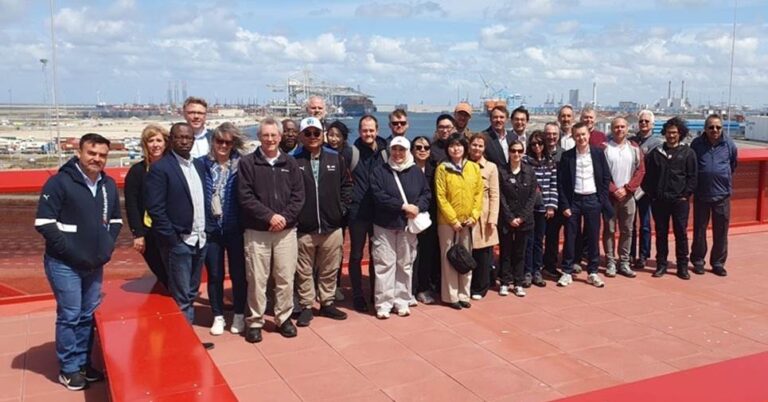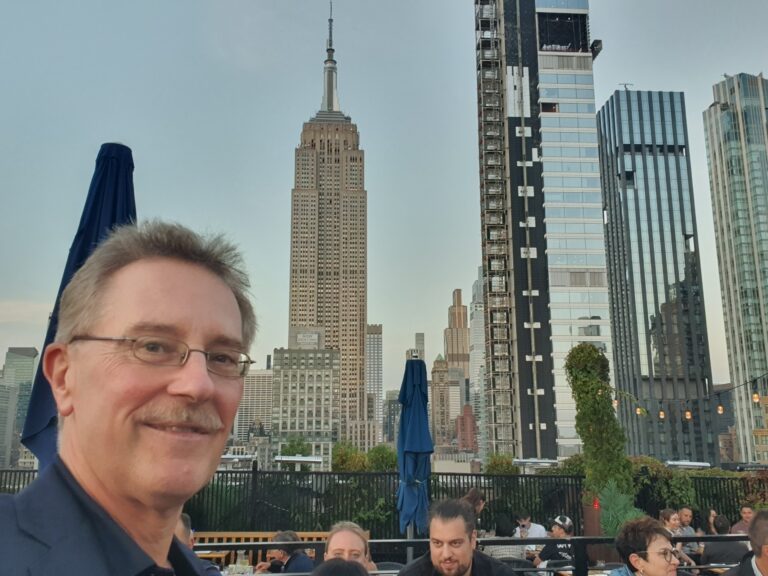
COP28 Update at Halfway
8 December 2023

Every COP is different, and this feels very different to COP27 in Egypt. Firstly, simply the size, COP27 had around 45,000 attendees, and this one has around 84,000. Then the area of the venue is large, so it can be a long way from one meeting or event to another. Also, some of it is outdoors, which can get very hot in the Dubai sun.
Then there is the atmosphere. The Paris Agreement’s Global Stocktake (GST) will conclude here. It is going to be depressing news on how countries have been performing against the Paris targets. The draft conclusions note with concern that we have 1.2C of warming and 2023 was the warmest year yet. Also, in the conclusions will be something on the energy sector. This is a very contentious area, whether to phase down or phase out fossil fuels is a key debate. This issue is likely to be also reflected in the final COP28 outcome cover text. The current draft GST text has several alternative options along the lines of triple renewables and double energy efficiency by 2030; scale-up zero and low-emission technologies including abatement and removal technologies including CCUS; an orderly and just phase out of fossil fuels; phase-out unabated fossil fuels by mid-century; rapid phase-out of unabated coal power this decade; and even just nothing on this topic. So, in this key area of GST, CCS is central to the debate. Hence there is a lot of noise on CCS. Much misinformation on CCS is being peddled in various articles and by some lobby groups and activists. At the same time, some argue to follow the IPCC science and the IEA which say we need CCS to achieve net zero and limit warming to 1.5C, and that there will still be some fossil fuels used by 2050. This means our role, and that of other CCS organisations, is crucial to provide balanced and impartial information on CCS to counter the misinformation. I have spent some of my time speaking to the climate-active youth here on these topics.
Also in COP but separate from the UNFCCC negotiations there were other significant agreements on climate action. Of most relevant to us was the launch of the Carbon Management Challenge by the US, UK, Brazil, Indonesia and Canada. This aims to accelerate CCS and CDR to a gigaton scale by 2030. 19 countries plus the EC have now signed up. As IEAGHG, we support this and were honoured to be invited to be in the room and sat at the (large) table with John Kerry, China’s Minister Xie and other dignitaries for the formal launch on the 5th of December. See Biden announces new Carbon Management Challenge on CCUS and CDR for COP28 – BLOG (ieaghg.org) and Carbon Management Challenge (CMC).
Also agreed was an update to the Global Methane Pledge. This aims to cut methane emissions by at least 30 percent by 2030. This year, Global Methane Pledge (GMP) partners announced $1 billion in new grant funding, new tools including the full launch of the Methane Alert and Response System, and new members. Canada, Micronesia, Germany, Japan, and Nigeria joined the United States and European Union as Global Methane Pledge Champions. Turkmenistan, Kazakhstan, Kenya, Romania, and Angola joined the Pledge, bringing total participation to 155 governments.
Also related to this, it was announced that 50 companies have joined the Oil and Gas Industry Decarbonization Charter, to achieve net zero in their operations by 2050 and stop routine flaring by 2030.
The first week was exceptionally busy for us. Not only did we organise two events, one of which was the only official UNFCCC-hosted Side-event on CCS, but we also spoke at or participated in many others. There were more CCS-focused events than ever before. With CEM-CCUS joining GCCSI, CCSA, International CCS Knowledge Centre and others in organising CCS-related events. There were also more CDR-focused events. For CCS- and CDR–interested people, there were actually too many to attend all of them.
Our UNFCCC-hosted side event was on the 3 December, we focussed on CCS in the cement sector and whether developments in developed countries could happen fast enough to help those in developing countries. We had talks and presentations from Brad Crabtree US DOE, myself, Beth Hardy-Valiaho International CCS Knowledge Centre, Ruth Herbert, CCSA, Dr Katherine Romanak, University of Texas, Jonas Helseth Bellona, and Claude Lorea, Global Cement and Concrete Association (GCCA). We concluded that the answer is Yes! One example is the GCCA’s new work on CCS on cement in India. We also learnt that Climate Action Network Europe has supported the CCS content in the EU’s Net Zero Industry Act. The room was almost full with about 100 in the audience. Questions and discussion flowed over to outside afterwards. We got good coverage by the COP media IISD, see Can Carbon Capture and Storage Decarbonise the Cement Sector in Developed and Emerging Economies? | IISD Earth Negotiations Bulletin. In a COP where the media is full of misinformation on CCS, this created a welcome island of positivity.
Our other side-event was on CCS In Small Island States. This was kindly hosted by the Clean Air Task Force (CATF). After a welcome from Brad Crabtree, we had updates from Deputy Permanent Secretary Karinsa Tulsie and Professors David Alexander and Raffie Hosein on progress in Trinidad and Tobago. This was followed by an update from Adiola Walcott and Josephine Maximus from the University of Guyana. Then for the first time at a COP, we had Nomesia dos Rais from ANPM providing an update on the World Bank supported work in Timor Leste. These talks and presentations demonstrated not just healthy ambition on CCS but also the South-South exchanges which have and are taking place, for example from South Africa to Trinidad and Tobago, from Trinidad and Tobago to Guyana, and hopefully onwards to Timor Leste and other small island states. This also linked nicely with the Carbon Management Challenge.
I was honoured to be invited to take part in a Youth NGO event. In a “majlis” format, the Youth Ambition Majlis Raising Ambitions Towards Net Zero was organised by the COP Presidency, YOUNGO Energy Working Group, and Youth Climate Change Champion. It was an enjoyable exchange of perspectives on a just and balanced energy transition. On the same day as I was sitting at the table with John Kerry and China’s Minister Xie, it was hard to say which was most important!
I also spoke at an event in the Oman pavilion on decarbonisation in Oman, in a CATF/Atlantic Council event on the Carbon Management Challenge, a CATF roundtable on the Carbon Management Challenge, and a CEM-CCUS/GCCA event on Creating CCS Infrastructure.
In the second week, we will more closely follow the Article 6 and the GST negotiations, hoping for very ambitious, fair and practical mitigation agreements.
Other articles you might be interested in
Get the latest CCS news and insights
Get essential news and updates from the CCS sector and the IEAGHG by email.
Can’t find what you are looking for?
Whatever you would like to know, our dedicated team of experts is here to help you. Just drop us an email and we will get back to you as soon as we can.
Contact Us NowOther articles you might be interested in
Get the latest CCS news and insights
Get essential news and updates from the CCS sector and the IEAGHG by email.
Can't find what you are looking for?
Whatever you would like to know, our dedicated team of experts is here to help you. Just drop us an email and we will get back to you as soon as we can.
Contact Us Now

